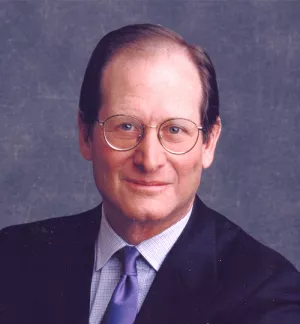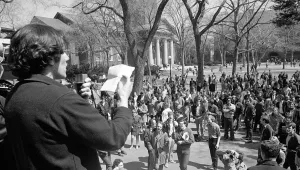President Obama set highly questionable timing goals in his Afghanistan speech at West Point Tuesday night: First, the additional 30,000 U.S. troops (plus an unclear additional number from our allies) will stop the Taliban, train the Afghan security forces and then start leaving in July, 2011 (subject, of course, to "conditions on the ground").
Second, this military effort will provide room for the civilian strategy of creating a stronger Afghan government by, among other things, supporting those who are not corrupt and holding accountable those who are corrupt, again by July, 2011, when we start to withdraw.
Both goals depend, in the first instance, on finding motivated Afghan leadership on both the military and civilian side in 18 months -- after eight years of failure. It has been widely reported that current Afghan military and police forces are largely incapable of carrying out their roles in situations of conflict. It is widely understood that Afghanistan is a failed state, riddled with corruption, kept afloat by a narco-economy (with 90 percent of the world's opium grown there) and beset by potent and long-standing tribal and ethnic divisions.
It is not that cross-cultural training in the many skills that together make up leadership is impossible. Such training occurs in a wide variety of international organizations--from international financing institutions to transnational companies to professional schools attracting students from all across the globe. But in these, and many other circumstances, the recipients of training are highly motivated. And they have time to apply general knowledge and skills to their particular cultures.
What will motivate potential Afghan leaders? Professionalism? Patriotism? Pay? Ambition? Fear? Rivalry with others? Perhaps the U.S. and its allies can use these diverse appeals in its attempt to encourage new military and civilian leadership in Afghanistan.
But ultimately, motivation and leadership are grounded in culture: the shared principles (values, policies and attitudes) and shared practices (norms, systems and processes) that influence how people feel, think and behave.
Why do we think we can change the complex Afghan culture when our "outsider" attempts to influence it -- including billions of dollars in assistance -- have, to date, been unsuccessful? General McChrystal, in his now famous report, said: "We face not only a growing and resilient insurgency: but there is a crisis of confidence among Afghans -- in both their government and the international community -- that undermines our credibility and emboldens the insurgents."
President Obama was silent about these profound questions of culture and motivation in his West Point speech. He was silent, too, about a single historical example where such a dramatic reversal in culture, motivation and leadership has taken place in such a short period of time in such a difficult place. (Is Iraq illustrative or not? The president avoided any analogies and only talked about six hard, controversial years there.)
Until the administration provides detailed answers to these basic questions about how cultural change and motivation of leaders can occur in 18 months, the Afghan speech will surely be seen as a political compromise, carefully crafted in good faith in Washington, to escape from the bad policy options of long-term commitment of more troops and treasure or short-term continuation of the status quo. But, in its haste to enter and exit, it will not be seen as a realistic response to the complex, intractable leadership (and many other) problems in Afghanistan, which have vexed foreign forces for decades.
For many reasons, including the sacrifices of our soldiers and the good of the nation, I profoundly hope I am wrong.
Heineman, Ben. “18-month Miracle?.” On Leadership at washingtonpost.com, November 30, 2009





